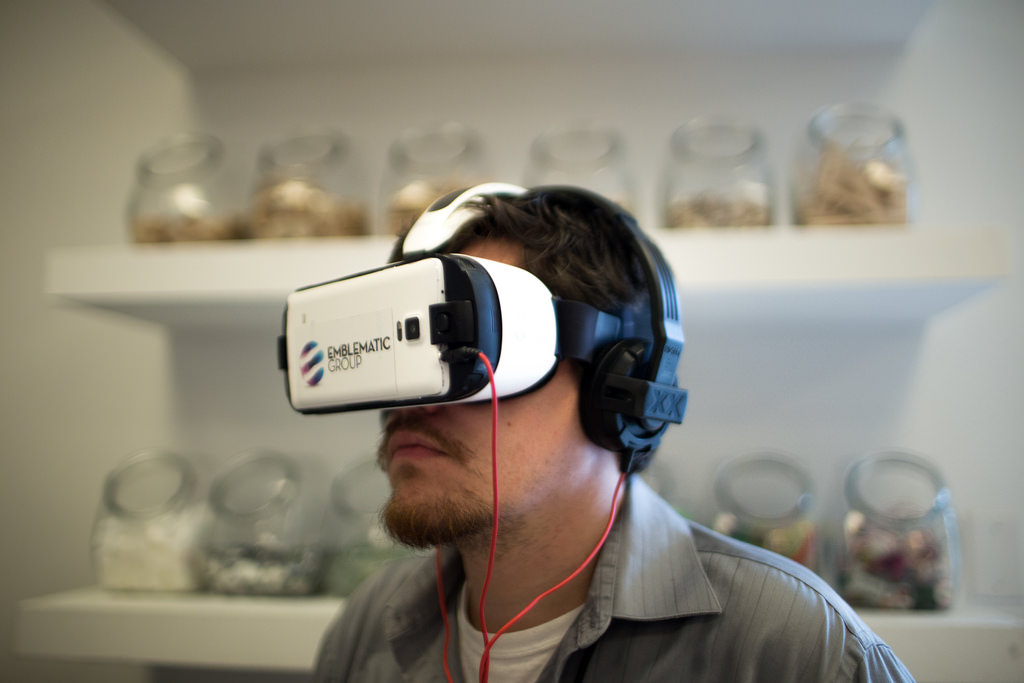With the ceaseless march of technological advancements, empathy and humanity have also taken a hit. Some of the factors contributing to people becoming less able to relate to one another are the veil of anonymity online and the disconnection that fake relationships have brought on via social media. Now, a new kind of technology in virtual reality is being used in the hopes of bringing back or even improving the humanity of users.
The numerous applications of VR technology have allowed it to thrive in several industries, including medicine and education. Now, it’s about to enter the field involved in training people to have more empathy towards others, NBC News reports.
The director of the Virtual Human Interaction Lab at Stanford University, Jeremy Bailenson wrote an email to the news network explaining the concept of using VR as a tool for teacher people how to become more human. It basically involves putting said users in the shoes of someone else and taking them through certain scenarios that they would not have had to go through in their normal lives.
"We have spent the past fifteen years designing experiments to test the efficacy of VR to teach empathy,” the email reads. “Across dozens of studies, a pattern emerges in that VR tends to be a more effective tool than other media and role-playing techniques."
This isn’t surprising since using VR isn’t like watching scenes progress on a flat screen where the viewer can easily feel disconnected from the events. While wearing the VR headset and seeing through the lenses, the user feels as if they are the ones in that situation regardless of how aware they are of the virtual experience.
One clear example involves an experiment where users took on the avatar of a coral that is slowly being corroded by the acidification of sea water. By the end of the experiment, the VR users were more likely to see ocean acidification as a threat as opposed to those who only viewed the events through a flat screen, Futurism reports.



 Jensen Huang Urges Taiwan Suppliers to Boost AI Chip Production Amid Surging Demand
Jensen Huang Urges Taiwan Suppliers to Boost AI Chip Production Amid Surging Demand  Palantir Stock Jumps After Strong Q4 Earnings Beat and Upbeat 2026 Revenue Forecast
Palantir Stock Jumps After Strong Q4 Earnings Beat and Upbeat 2026 Revenue Forecast  Nvidia, ByteDance, and the U.S.-China AI Chip Standoff Over H200 Exports
Nvidia, ByteDance, and the U.S.-China AI Chip Standoff Over H200 Exports  SpaceX Reports $8 Billion Profit as IPO Plans and Starlink Growth Fuel Valuation Buzz
SpaceX Reports $8 Billion Profit as IPO Plans and Starlink Growth Fuel Valuation Buzz  SoftBank Shares Slide After Arm Earnings Miss Fuels Tech Stock Sell-Off
SoftBank Shares Slide After Arm Earnings Miss Fuels Tech Stock Sell-Off  Amazon Stock Rebounds After Earnings as $200B Capex Plan Sparks AI Spending Debate
Amazon Stock Rebounds After Earnings as $200B Capex Plan Sparks AI Spending Debate  Elon Musk’s SpaceX Acquires xAI in Historic Deal Uniting Space and Artificial Intelligence
Elon Musk’s SpaceX Acquires xAI in Historic Deal Uniting Space and Artificial Intelligence  Nintendo Shares Slide After Earnings Miss Raises Switch 2 Margin Concerns
Nintendo Shares Slide After Earnings Miss Raises Switch 2 Margin Concerns  AMD Shares Slide Despite Earnings Beat as Cautious Revenue Outlook Weighs on Stock
AMD Shares Slide Despite Earnings Beat as Cautious Revenue Outlook Weighs on Stock  Nvidia Nears $20 Billion OpenAI Investment as AI Funding Race Intensifies
Nvidia Nears $20 Billion OpenAI Investment as AI Funding Race Intensifies  Sam Altman Reaffirms OpenAI’s Long-Term Commitment to NVIDIA Amid Chip Report
Sam Altman Reaffirms OpenAI’s Long-Term Commitment to NVIDIA Amid Chip Report  Nvidia Confirms Major OpenAI Investment Amid AI Funding Race
Nvidia Confirms Major OpenAI Investment Amid AI Funding Race  SpaceX Updates Starlink Privacy Policy to Allow AI Training as xAI Merger Talks and IPO Loom
SpaceX Updates Starlink Privacy Policy to Allow AI Training as xAI Merger Talks and IPO Loom  Google Cloud and Liberty Global Forge Strategic AI Partnership to Transform European Telecom Services
Google Cloud and Liberty Global Forge Strategic AI Partnership to Transform European Telecom Services  Anthropic Eyes $350 Billion Valuation as AI Funding and Share Sale Accelerate
Anthropic Eyes $350 Billion Valuation as AI Funding and Share Sale Accelerate 































